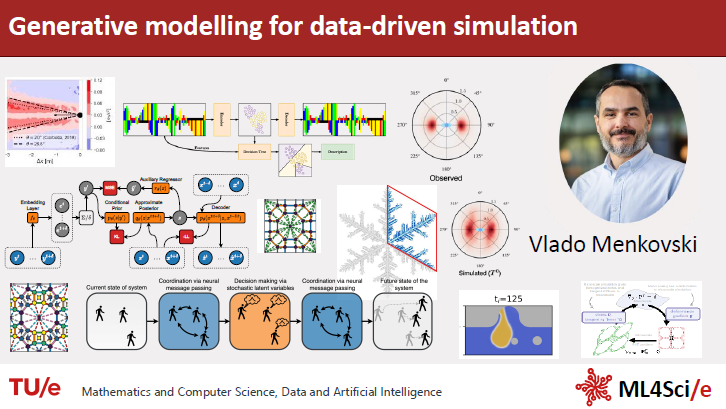Abstract: Machine learning (ML) methods are taking a prominent role for surrogate modelling motivated by their capability to alleviate the high computational complexity of traditional methods. Moreover,ML-based methods are also well suited for problems where no symbolic models are available or where not all phenomena are fully understood while experimental data is available. However, the proliferation of such approaches is impeded by several key challenges.ML-basedmethods typically require large amounts of training data, it is hard to guarantee their stability as well as their generalization capability. But arguably their main disadvantage is lack of interpretability that makes these models limited tools for extracting scientific insight.
These challenges are not ubiquitous as ML-based approaches exist on a spectrum ranging from fully data-driven to highly structured approaches that are tightly integrated with physics based mathematical models. So, on the one hand structured approaches such as PINNs, provide for much more guarantees and require less training, but are hard to train, require the full understanding of the system and are limited to narrow applications. Following this, ML-based closure models, Neural Operators and many different physics informed loss functions trade off structure and stability for flexibility. Finally, on the far end of the spectrum lie the fully data-driven methods. These methods promise the most flexibility and generalization where sufficient data is available.
In this talk, I argue the role and advantages of fully data-driven models, but also the key components to their success. I will particularly discuss the contributions that Deep Learning (DL) plays in learning efficient representations from high dimensional data. The utility of Deep Geometric Learning and the geometric symmetries that make DL models (more) efficient. The advantages of using Deep Generative modeling in enabling uncertainty quantification and data efficiency. Finally the benefits of such methods to ingest both simulation and experimental data as well as how domain-informed evaluation methods can lead to strong scientific insights. I will go over these topics using three guiding use cases: simulation of Tokamak exhaust (Div1D), simulation of pedestrian dynamics and simulation of mechanical properties of meta-materials.

Date
Chair
Location
Speaker
Affiliation
Website
Go to the Events page.